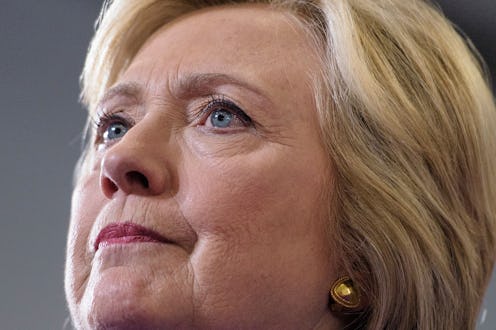News
Debates Might Not Help Candidates All That Much
Despite the candidates’ public statements, nobody really knows how each of them will behave at the first presidential debate on Sept. 26. Although Hillary Clinton and Donald Trump prepared extensively ahead of the big event it’s worth taking a step back and asking a more general question: Do presidential debates even matter? Do they actually affect elections in a material way, or are they just fodder for pundits, advertisers, and TV networks?
There’s good evidence that debates, for all of the hype and attention they receive, don’t actually have much of an effect on the outcomes of elections. Sure, there are a handful of memorable moments in presidential debates that we all still talk about, like Ronald Reagan’s joke about Walter Mondale’s age or Barack Obama’s “please proceed, governor” moment from 2012. But just because a moment is funny or notable doesn’t mean it actually had an effect on the behavior of the electorate at large.
Rather, history shows that debates rarely have a noticeable influence on the polls. Robert Erikson and Christopher Wlezien, co-authors of The Timeline of Presidential Elections, looked at every election from 1960 to 2012 and found very few examples of a debate dramatically changing a candidates’ standing in the polls; political scientist John Sides has concluded the same.
Not everybody agrees with this. Nate Silver wrote in 2012 that the challenging party’s candidate usually gets a polling boost of a few points on average after the debates. But even if that’s true, does that really mean the debate had an affect on the election results? Since 1960, there have been only three instances in which the two candidates’ poll standing reversed after the first debate: 1980, 2000, and 2012. This would suggest that the debates were game-changers those years, but even this data is deceptive.
The 2000 election is notoriously difficult to use in studies like this. George W. Bush lost the popular vote but won the electoral college in one of the most contentious election disputes in American history. To this day, there’s still vigorous debate over who actually “won” that election, so it’s not a terribly helpful case study.
In 2012, Mitt Romney overtook Obama in the polls after the first debate, and given that Obama’s performance in that debate was criticized by just about everybody, it wouldn’t be crazy to conclude that it was responsible for his polling slip. But Obama won the election anyway, just as polls predicted he would before the debate.
That leaves 1980, when Ronald Reagan trailed Jimmy Carter by a few points before the first (and only) debate, led him by a few points afterwards, and went on to win the election. But once again, there were a whole lot of other things going on that could have easily been responsible for Reagan’s success, most notably the ongoing Iran hostage crisis. Also, Reagan won by almost 10 points — over three times bigger than the modest 2.8 percent polling bump he received after the debate.
Debates play an important role in the political process, as they offer America an invaluable opportunity to hear candidates challenge one another in real-time on their policies and temperament. It’s a good thing that they exist, and hopefully, they’ll continue to be a standard part of the electoral process. But they likely don't actually change the outcomes of elections.
